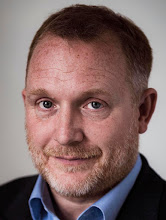Good to see George Siemens giving space to Mark Bullen's blog More NetGen Nonsense in which he debunks the hyperbole around web 2.0 changing the way people learn as having little hard facts to support it. In particular with reference to a recent study at Glasgow Caledonian and Stratchclyde Universities,
"Two British researchers have just completed a study of undergraduate students that found "many young students are far from being the epitomic global, connected, socially-networked technologically-fluent digital native who has little patience for passive and linear forms of learning." Instead, the study found that students use a limited range of technologies for both formal and informal learning and that there is a "very low level of use and familiarity with collaborative knowledge creation tools such as wikis, virtual worlds, personal web publishing, and other emergent social technologies.""
This reminds me of a conversation I had earlier this year with Martyn Sloman of the CIPD about the creeping generational facism surrounding learning 2.0. We agreed that neither of us was aware of any evidence to support the claim that NetGen people learned any differently to their predecessors (please feel free to provide me with evidence to the contrary).
What has demonstratively changed is the ease of access to information (see The Machine is Us for a quick demonstration of how). I dont think I will provoke too many people if I say that human beings "acquire" while they are young (Chomsky et al) until they we have taught them how to learn at which point they become less efficient at aquisition.
The elements I believe are still missing from Learning 2.0 are evolved teaching methods to take advantage of the comparative ease of access to data. If we can teach the world reflective practice (Do - Review - Apply) we might get this ball rolling.
“let the discourse rage without you”
6 days ago

2 comments:
I think you mean George Siemens, but I would have posted it had I seen it ;-)
Oops sorry Harold (and George). You right, my mistake. Thus I provide further evidence, were it needed, that unattributed or falsely attributed claims on the internet proliferate even behind the best of intentions.
I have corrected the attribution and will try to be more dilligent in future.
Post a Comment